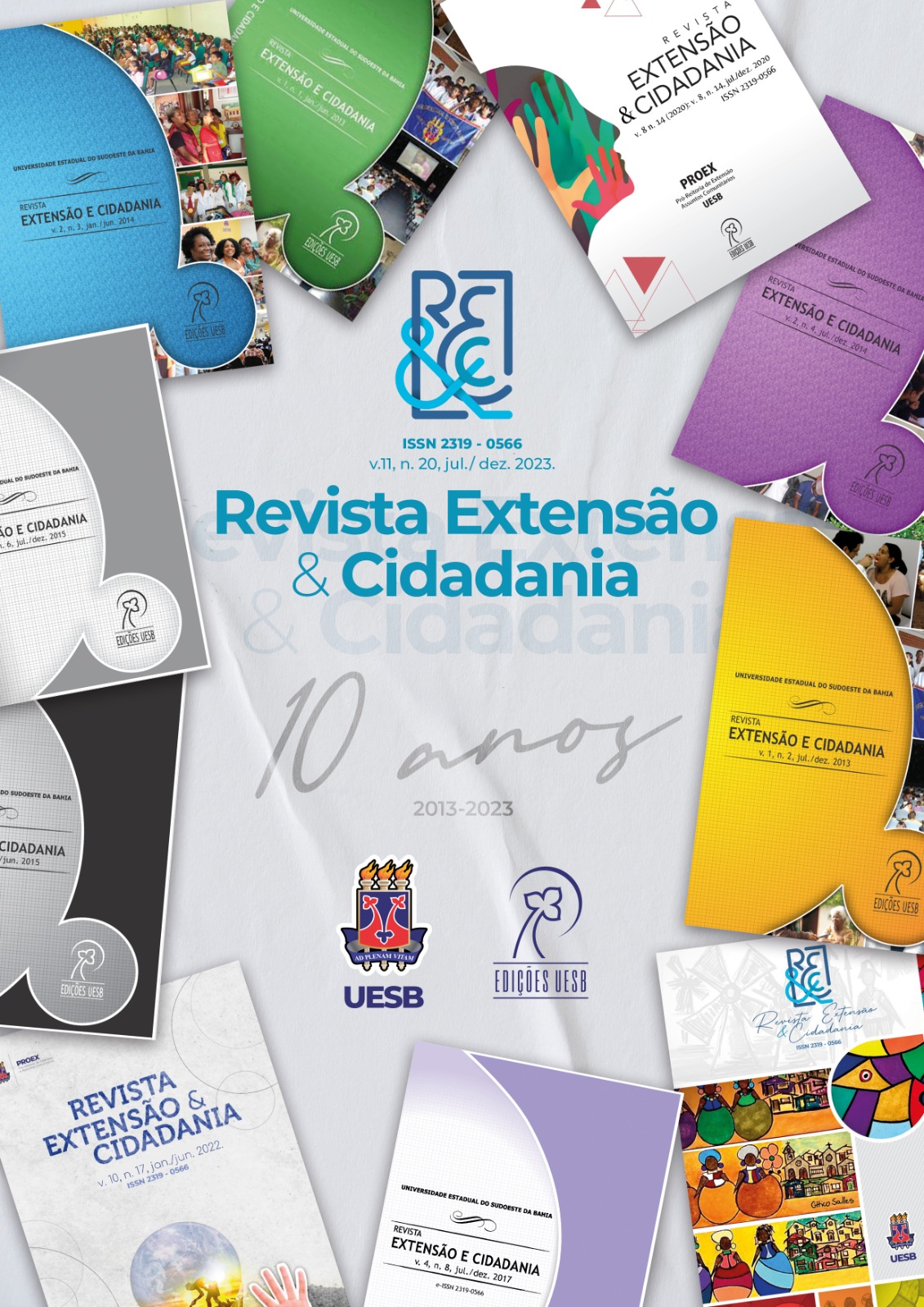THE ROLE OF UNIVERSITY EXTENSION IN THE PROGRAM OF EDUCATORS' TRAINING IN RURAL AREAS – FORMACAMPO
DOI:
https://doi.org/10.22481/recuesb.v11i20.13024Keywords:
University Extension, Continuing Education, Rural Education., Extensión Universitaria. Formación Continua. Educación en el Campo.Abstract
University extension should be understood as an intrinsic part of the inseparability between teaching and research. Prioritizing the ethical and political value sought by the institution in the educational process, permeating teaching and learning activities, accessibility to knowledge, and connectivity with social, economic, and governmental sectors. This study is based on a descriptive research, specifically an experiential report, aimed at addressing the "Educators Training Program in Rural Areas - Formacampo." It is an extension action of the Pro-Rectory for Extension (PROEX) at the State University of Southwest Bahia (UESB). The Formacampo Program adopts a critical perspective based on dialectical materialism for rural education, offering continuous training to professionals working in rural education, in schools located in the municipalities of the territorial identities of Bahia. The program is organized around important issues such as the importance of the Political Pedagogical Project for basic rural education and the possibility of implementing a concept of education that is based on a historical educational project. Formacampo has provided a better understanding of education in rural areas, contributing to the appreciation of education and promoting a differentiated perspective on the subject. Emphasizing the importance of considering the rural-urban divide.
Downloads
Downloads
Published
How to Cite
Issue
Section
License
Copyright (c) 2023 Revista Extensão & Cidadania

This work is licensed under a Creative Commons Attribution 4.0 International License.






